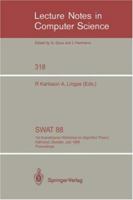The Basics of a Hosting Business
So, you want to become a web hosting company? That's a GREAT CHOICE, in our opinion. This guide is here to help you learn what goes into becoming a host and how to be successful in this fast-growing industry. We are going to cover everything you need to know, from how to pick a server to what information you will need to be able to sell your business once you get successful. We will also introduce you to WHMCS. WHMCS is the world's leading web hosting automation platform. Handling customer signups, provisioning, billing and support, WHMCS is used by tens of thousands of web hosting businesses around the world to manage their daily operations and put them firmly in control of their business.
Format:Paperback
Language:English
ISBN:151163023X
ISBN13:9781511630238
Release Date:May 2015
Publisher:Createspace Independent Publishing Platform
Length:88 Pages
Weight:0.35 lbs.
Dimensions:0.2" x 6.0" x 9.0"
More by Andrzej Lingas
Customer Reviews
0 customer rating | 0 review
There are currently no reviews. Be the first to review this work.





















